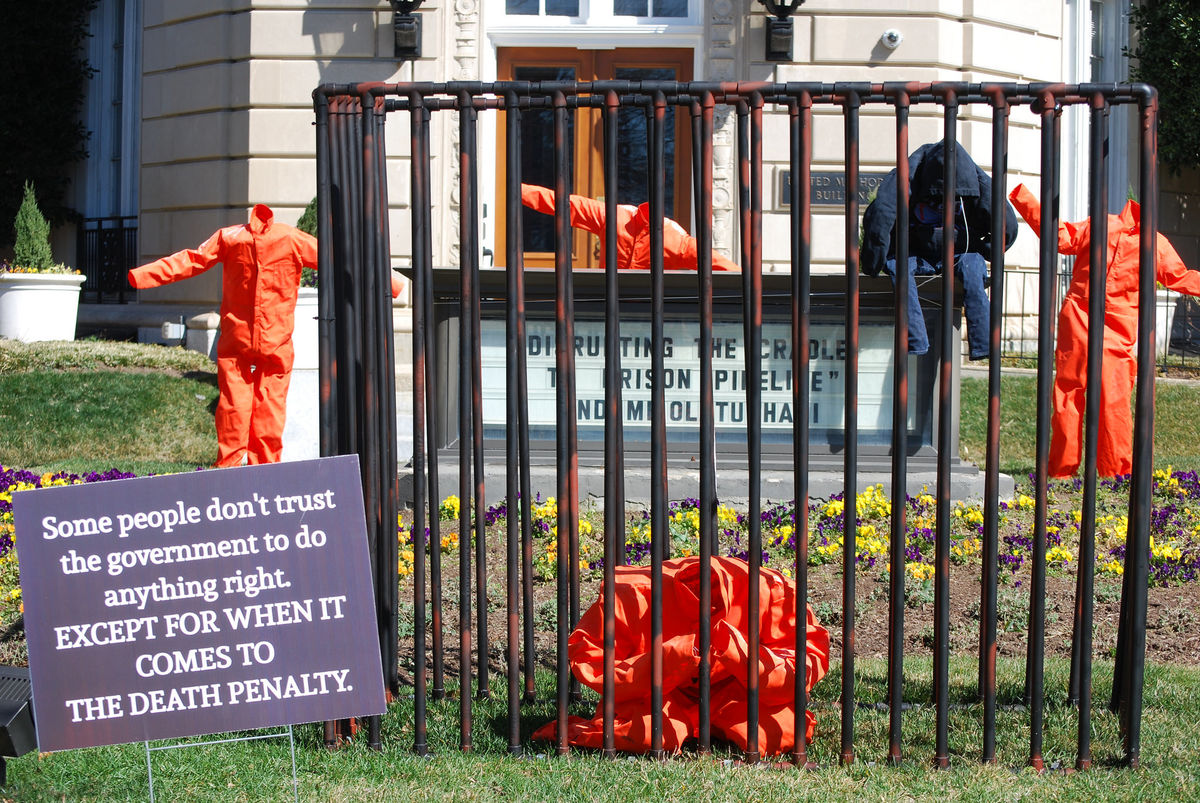Criminal Justice Reform
The biblical ideal of justice emphasizes right relationship with God, oneself, individuals, and the entire community.

We live in a world marred by brokenness and sin. In addition to the systems of oppression that damage society, we often miss the mark and harm one another. Sometimes our actions lead to hurt feelings. Sometimes the effects of our actions are far worse.
When one harms another, relationships break down, both with one another and with God. The victims of crime need healing. Those who commit crimes must be held accountable for their actions and given the opportunity to return to their full place in the community.
A justice system that reflects God’s desires for the world is one that is healing and restorative.
United Methodist Book of Resolutions, 5031Justice is needed the world over. However, we rarely see its proper implementation.
- Systems of justice based on retribution further harm society. Seeking to punish rather than heal, they breed more brokenness.
- Racism, sexism, classism and other oppressions distort law and order.
Justice systems marked by these characteristics inhibit community. They deny the sacred worth of all people. They are not just.
The system of justice God desires for us focuses on healing and restoration. It heals the wounds of the victims, addresses the wrongs of the perpetrator, restores society to wholeness and stops—not perpetuates—cycles of systemic evil. The biblical ideal of justice emphasizes right relationship with God, oneself, individuals, and the entire community.
What the Bible and The United Methodist Church Say:
The Bible has a lot to say about justice. How we live together and treat each other, particularly when one has harmed another, is a central theme.
The Bible says a criminal justice system should be:
- • Accessible to all (Deuteronomy 1:17)
- • Impartial (Exodus 23:1-3)
- • Honest (Exodus 23:7)
- • Of integrity (Exodus 23:6, 8)
- • Fair to all without regard to status (Leviticus 19:15)
- • Humane and restorative to prisoners (Lamentations 3:34-36)
The United Methodist Church says, “A justice system that reflects God’s desires for the world is one that is healing and restorative.” (Book of Resolutions, 5031)
The church supports “measures designed to remove social conditions that lead to crime, and we encourage continued positive interaction between law enforcement officials and members of the community at large.” (Social Principles, ¶164.H)
The United Methodist Church calls on government and society to “stop criminalizing communities of color in the United States” by dismantling unjust, racist policies and practices, including racial profiling, mass incarceration and communal disenfranchisement. (Book of Resolutions, 3379)
“In the love of Christ, who came to save those who are lost and vulnerable, we urge the creation of a genuinely new system for the care and restoration of victims, offenders, criminal justice officials, and the community as a whole.” (Social Principles, ¶164.H)
Three Things You Can Do:
- Host a church viewing of documentaries such as “13th” by Ava DuVernay, which showcases the roots of the U.S. system of mass incarceration in chattel slavery. Or, have your Bible study group read books such as The New Jim Crow: Mass Incarceration in the Age of Colorblindness by Michelle Alexander or Just Mercy by Bryan Stevenson, which reveal injustices of racism and more in the contemporary U.S. criminal justice and capital punishment systems. Pair these activities with a church and community discussion on criminal justice in your neighborhood.
- Build relationships with persons in prison, victims of crime, those who have recently returned from prison, and their families and communities. Include victims of crime, prisoners, death row inmates and their families in your prayers. Support social services and community-based programs that help prevent crime and reduce recidivism. Host a criminal record expungement clinic at your church.
- Connect with the United Methodist ministry, Strengthening the Black Church for the 21st Century, and their prison ministry programs, which include the biennial National Prison Summit on Mass Incarceration.
Related Resources